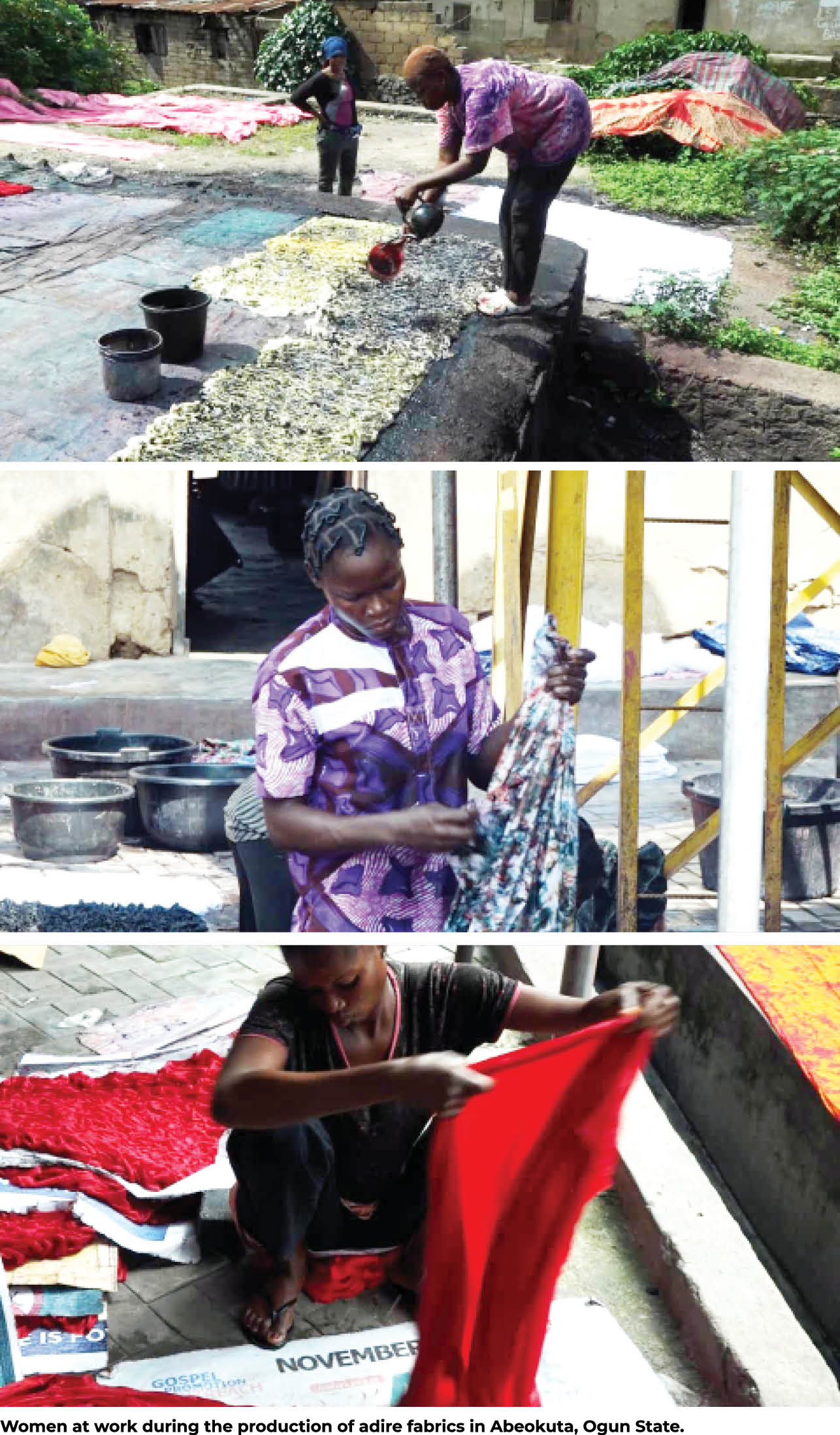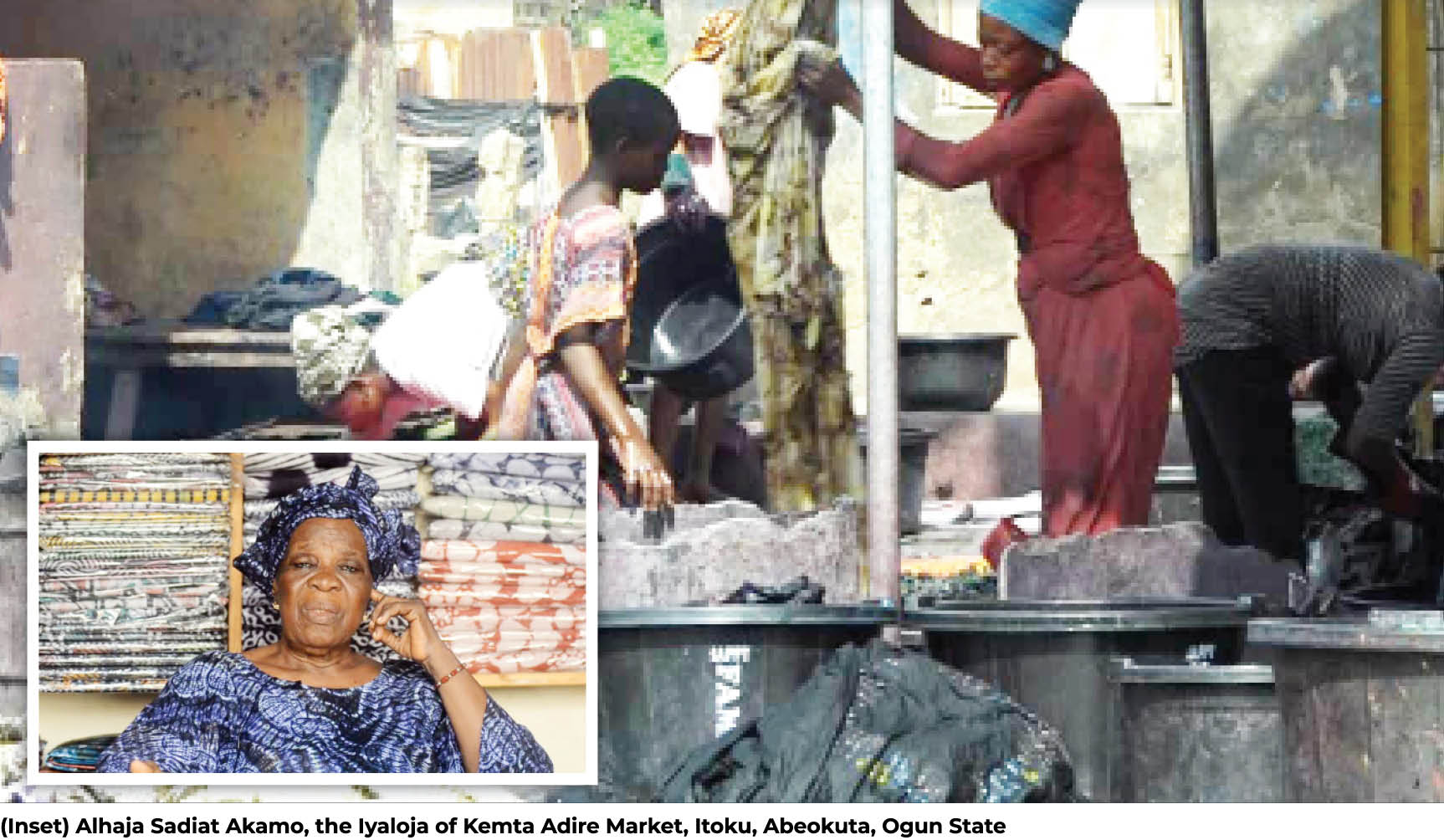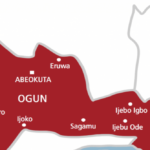Every day, more than 1,500 women are directly involved in the production, marketing and selling of Adire/Kampala, an age-long handmade indigenous fabric in Itoku area of Abeokuta, Ogun State.
An 82-year-old Alhaja Sadiat Akamo, the Iyaloja of Kemta Adire Market, Itoku, Abeokuta, was born into the adire trade. She embraced the family craft, made a name for herself over decades and trained children who are now graduates in clothing material-making business.
“I have trained so many children including an engineer and a doctor through the trade. All of them are now skilled in adire making,” Akamo, who is not lettered, said.
The octogenarian is a great-granddaughter to the late Chief Mrs Miniya Jojolola Soetan, the second Iyalode (Head of Women) of Egbaland, who pioneered adire production in Egbaland.
- Meet Murjanatu Saulawa, mother of 3 excelling in shoemaking
- Pilots survive as Air Force suffers mishap in Kaduna
In the early 20th century, an indigo-dyed cloth adorned with resist patterns earned the Yoruba name Adire, meaning “tie and dye” in English.
The authentic Adire fabric was painstakingly crafted using ‘teru’ (local white clothing) and ‘elu’ (local dye), derived from ‘elu’ leaves cultivated in the Saki region of Oyo State.
Its origin is traced back to Jojola’s compound in Kemta, Abeokuta, where Chief Mrs Soetan, pioneered its production. She passed down the clothing material adornment techniques to her descendants who, in turn, have continued with the tradition through generations.

Adire, one of the most sought-after locally made fabrics from Abeokuta, attracts hordes of traders and tourists daily. They come to patronize female entrepreneurs, learn from their expertise, and marvel at the intricate craftsmanship.
Akamo explained that, “Adire fabrics production is a heritage for many of us. It is a family business for me and others. We also have those who came to work with us, learnt the trade and have also passed it down to their children. Those too can call it their family trade.”
The trade is predominantly dominated by hardworking, strong and resilient women, both young and old, passionate about preserving the age-long heritage; earning a living and empowering generations.
Our correspondent visited the Adire/Kampala production pavilion, Kemta, a section different from the market where buying and selling take place. The market is located a few metres away from the popular Olumo Rock tourist site. It hosts more than 1,500 women, who are directly involved in the production and marketing of adire fabrics.
At the pavilion, sitting in clusters, with their heads bowed over bowls containing textiles soaked in dye, and their hands stained with the various colours of the dye, the women are immersed in the art of crafting and designing elegant and beautiful adire fabrics.
That’s their life, passion, inheritance and means of livelihood.
These women remain specialists in the patterning, tying, hand-painting and hand-sewing that is artistically done prior to dyeing. But, with time, the men became involved in the decorating techniques using stitching machines and applying starch through zinc stencils, thereby adding to the beauty and variety of the designs and also introducing some ease and speed in the process.
Over the years, the value chain of adire has been extended to create jobs for a number of women such as the dyer, known as Alaro, and the decorator, known as Aladire, among others.
Today, the adire industry has become a huge one, employing thousands of men and women, especially the youths and generating huge revenue for the government.
The Iyalode said the adire production and designs have gone through different stages of development unlike what was bequeathed to her generation.
“Back then, it was purely a family trade. But we felt we can’t remain stagnant in the trade. We have to keep evolving. So, the development has allowed us to accommodate other people in order to improve on the production, including the designs.
“The way we developed the trade was that, if you are married into our family, you have to engage in adire production. If the wife comes with her siblings or helps, they will all engage in the trade.
“The government has also mandated us to train students in the adire making and designs,” she explained.
Akamo said unlike in the past, when buyers of adire were from the neighbourhoods, “there is nowhere that people have not heard about adire today.”
Another leader of Kemta adire market, Mrs Modinat Oyetola, who started the trade in 1984, noted that adire trade has become a “refuge” for women where they, not only build themselves, but also earn a living.
She said adire has grown from being a family heritage to a global business.
According to her, adire business has taken thousands of women out of the streets, saying the trade is no longer one reserved for the uneducated.
“Here in Kemta adire/kampala market, we have more than 200 graduates plying their trades and they are now employers of labour.
“Adire business is a good and lucrative job. We are doing well in it. This is my family business, I inherited it from my family, you cannot compare the business of tie and dye with any other business because this is a traditional business and it is the pride of Ogun State and Nigeria.
“In this market, we have more than 1,500 women who are directly involved in the production and marketing of adire fabrics. We also have the male folks in this business, but their population is very low compared to that of the women,” she said.
She explained that the population of men in the business started growing as a result of the high rate of unemployment in the country.
“The population of men is fast growing, but adire business is a female-dominated trade.”
Oyetola advised women to find a trade and not be dependent on their husbands.
“We should not just be liabilities to our husbands. There are many departments in the production of adire and this encourages the division of labour. We have the designers, the folders, those who wet the textile, the dyers and the beaters before getting to the marketers.
“In all these processes, hundreds of women are involved, so the trade provides employment for thousands of women,” she said.
However, the generational trade is now under threat. The jobs of the adire women are seriously being threatened by the incursion of the Chinese with what they called adulterated adire fabrics and the collapse of the Nigerian textile industry.
The local producers of the adire fabrics recently abandoned the shops and stormed Abeokuta streets in Ogun State, protesting the alleged imitation of their designs and adulteration of the products.
Oyetola lamented that the Chinese adire designs have now flooded the Nigerian market, stifling the growth of the local adire fabrics.
“The biggest challenge is the collapse of the Nigerian textile industry which has made it very difficult for us to get quality cotton and materials for adire production.
“Unfortunately, now, all the textile materials and even the dye and wax candle that we use in the production of adire are today all being imported from outside the country. And the most unfortunate thing is that the prices of these materials keep growing every day.
“This is forcing many of our women out of the business,” Oyetola said.
On her part, Akamo admitted the challenges crippling the family trade, but said “I don’t regret choosing the career path. I am happy because I am better for it.
“My wish is that the Adire trade does not die. Adire should be available in any country of the world. Whether I am alive or dead, I want the glory to continue to shine forever and ever,” the octogenarian said.




